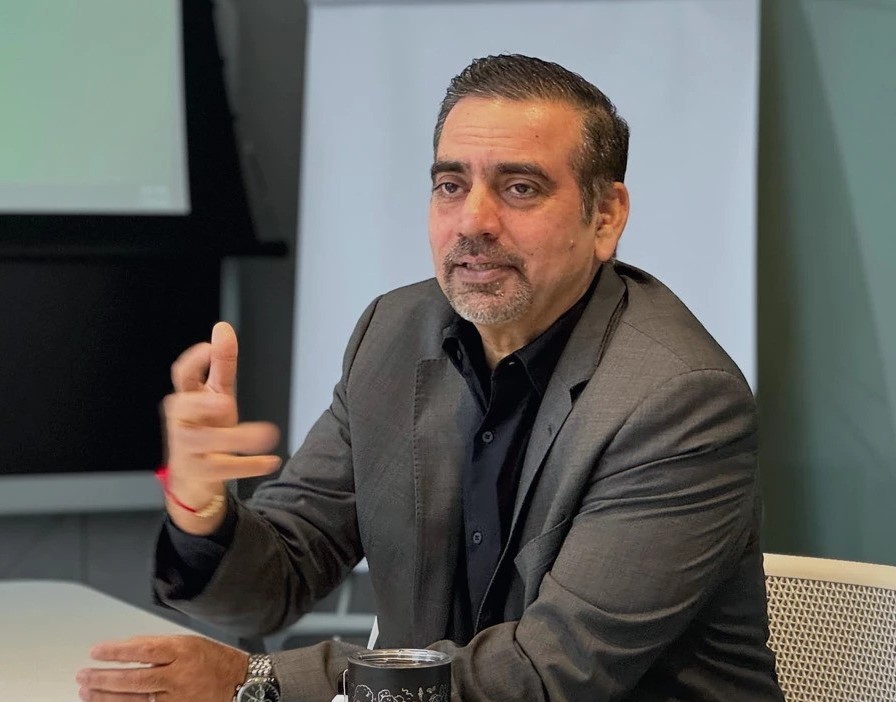(ANN/THE NATION) – Nokia envisions Thailand as a potential hub for Southeast Asia’s digital industry and is committed to emerging as a premier solution provider for data centre connectivity in the region.
In an exclusive interview with The Nation, Ajay Sharma, the head of Nokia Thailand and Cambodia, expressed the company’s commitment to expanding its role and presence in the country and the wider region, aligning with the anticipated exponential growth of digital-related businesses in the upcoming years.
Sharma said Nokia’s ambition to actively participate in the evolving market, especially as the data centre sector is just beginning to flourish.
He highlighted the company’s strategic positioning to connect real data centres, not only within Thailand but also extending across borders.
Nokia’s advantage lies in its proven technology, established interfaces, and existing installations, positioning the company well to play a crucial role in the connectivity landscape of evolving data centres.
“I think we are on the right path for the scale of the market,” he said.

His confidence stems from Thailand’s Board of Investment implementing several incentive programmes, ranging from tax exemptions to other benefits for companies investing in digital technology and data centres in the kingdom.
As a result, it is not surprising to learn that several outstanding companies, including Etix Everywhere, Singtel-AIS, and Raimond Land-Nautilus Data Technologies, have already laid out a collaboration plan to develop a data centre campus in Thailand, he said.
Data centre market
According to RationalStat’s research, the Thai data centre market is expected to grow at a compounded annual growth rate of around 25 per cent between 2022 and 2028.
Meanwhile, it is estimated that by 2025, the country’s data centre market will have doubled in size to 100 megawatts of current capacity.
“As you may know, there are many data centres coming up in Thailand, where digital 4.0 is widely promoted. And with that, many data centres have been deployed in order to digitise industries,” Sharma explained.
He pointed out that the increased focus on hyper-scale cloud service providers’ interest in the region and the transition from company-owned servers within office buildings to public cloud facilities would increase the number of data centres.
However, he noted that the distributed and complex data centre landscape indicates difficulties in connecting the disparate on-premise, private, public, and edge co-location facilities that enterprises use.
“As the data centre is growing in a big way, great connectivity is required to connect data centres. And for that, we [Nokia] provide connectivity solutions,” Sharma said.
He defined good connectivity as all-encompassing high-speed, low-latency, ultra-secure connectivity and power and space cost savings that allows multiple data centres to be integrated into a virtually unified and cohesive environment.
“As these organisations transition to cloud IT, We believe that Nokia’s Data Centre Interconnect (DCI) solutions will be required. The right cloud interconnect solutions can help deliver the benefits that most organisations require, whether that is control, security, flexibility, agility, or lower cost,” he says.
Nokia plays an important role in providing organisations with a variety of DCI solutions for cloud interconnection.
He added that these solutions provided flexibility, scalability, and security required to support current DCI needs, as well as the capacity, performance, and agility demanded to support cloud interconnect across different cloud types.
Growth in Thailand
Nokia sees potential for growth in Thailand as the company unveils its Technology Strategy 2030, which identifies trends and emerging technologies that will shape technology, networks, and the world over the next seven years.
The key trends influencing Nokia are AI, cloud continuum, metaverse, application programming interfaces economy, industry 5.0 with the rising role of collaborative robots and Internet of value, sustainability, and security.
According to the company, end-user data traffic demand will grow at a compounded annual growth rate of 22-25 per cent through 2030. In 2030, the global network traffic demand is expected to range between 2,443 and 3,109 exabytes per month.
“We see the potential of digital to transform business, industry, and society in Thailand, and Nokia plays a critical role in enabling this,” said the Nokia chief.







